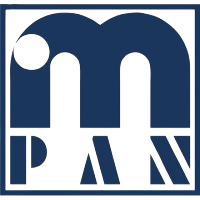News
- Details
We are pleased to announce that dr. hab. Grigor Sargsyan has received the Minister of Science and...
- Details
The Academia PAN portal has published an interview with dr hab. Karol Palka, Director of the...
- Details
An article presenting a research project carried out by an IMPAN researcher, dr hab. Grigor...
- Details
We are pleased to announce that, during the meeting of the Scientific Council held on 22 January...
- Details
On 19–21 November 2025, the 1st National Congress “Science for Business” took place at EXPO...








